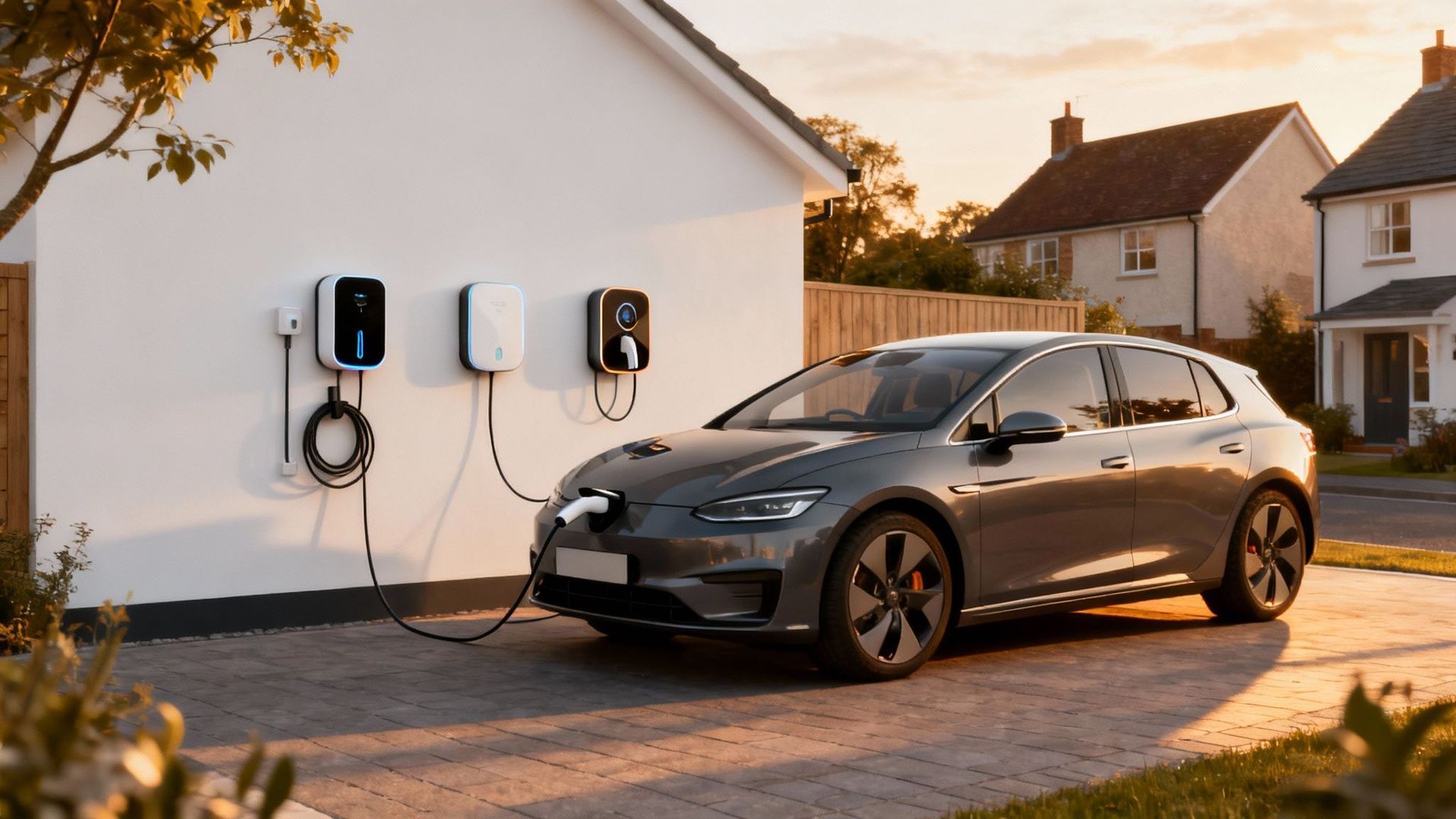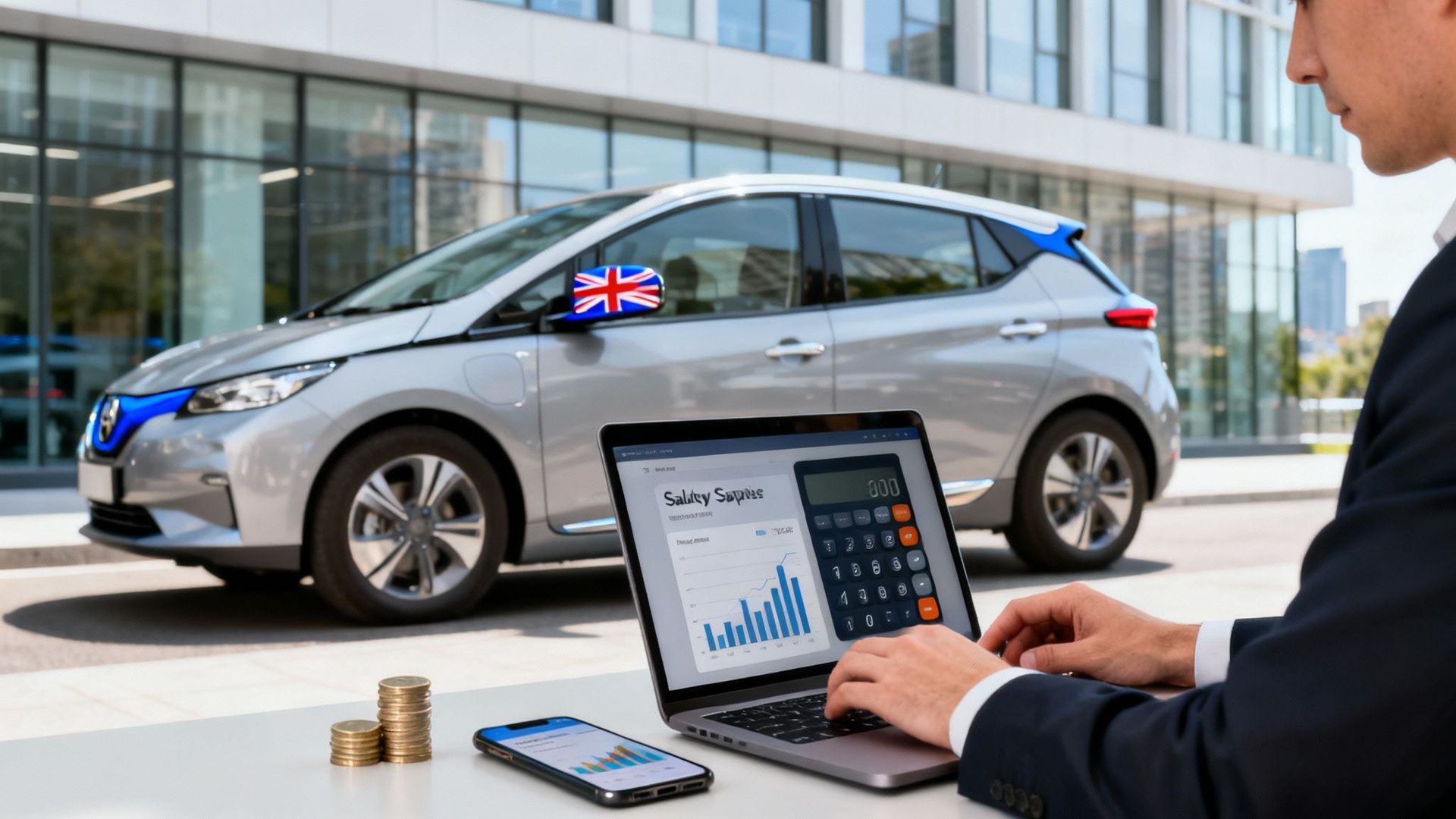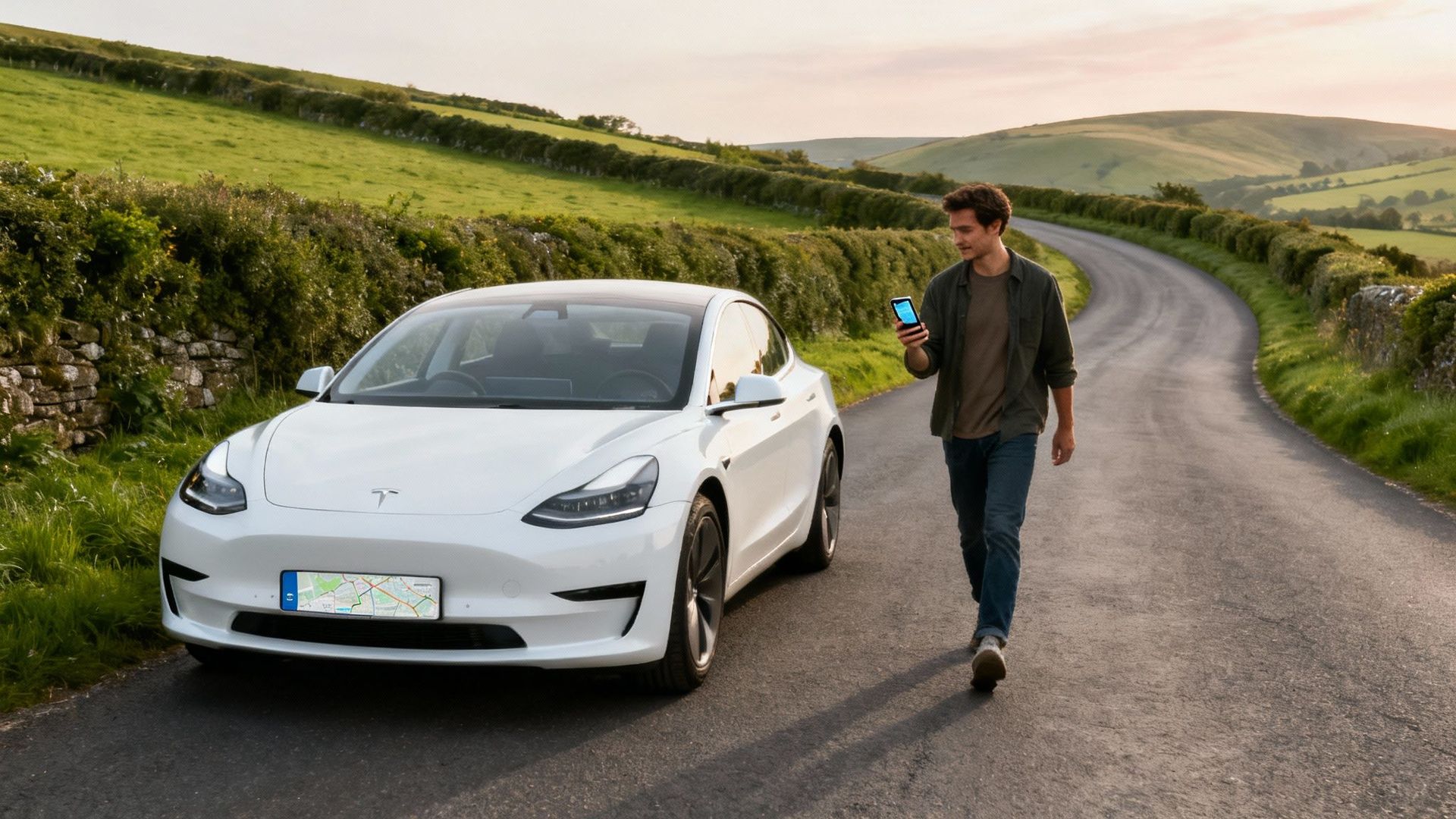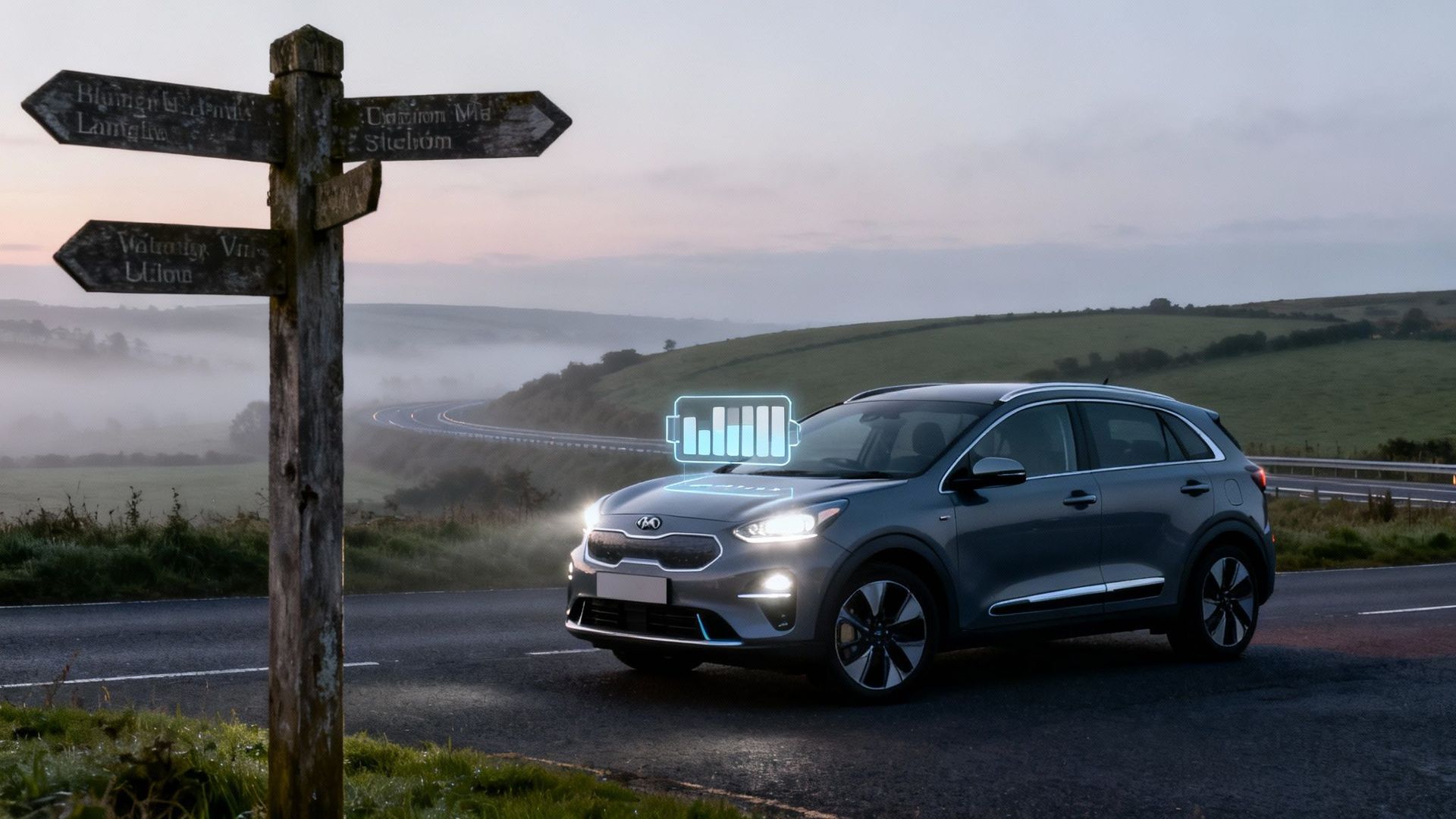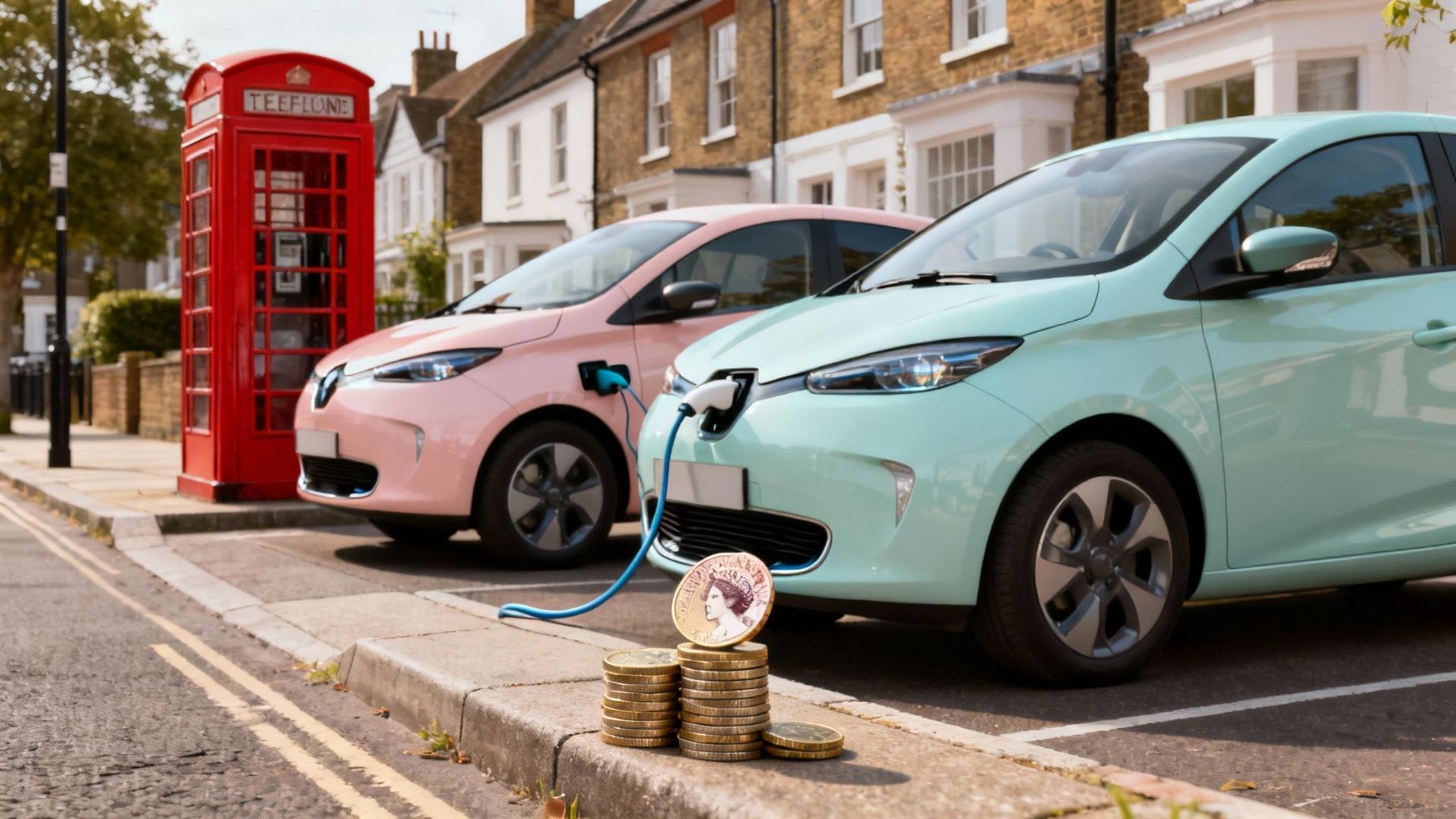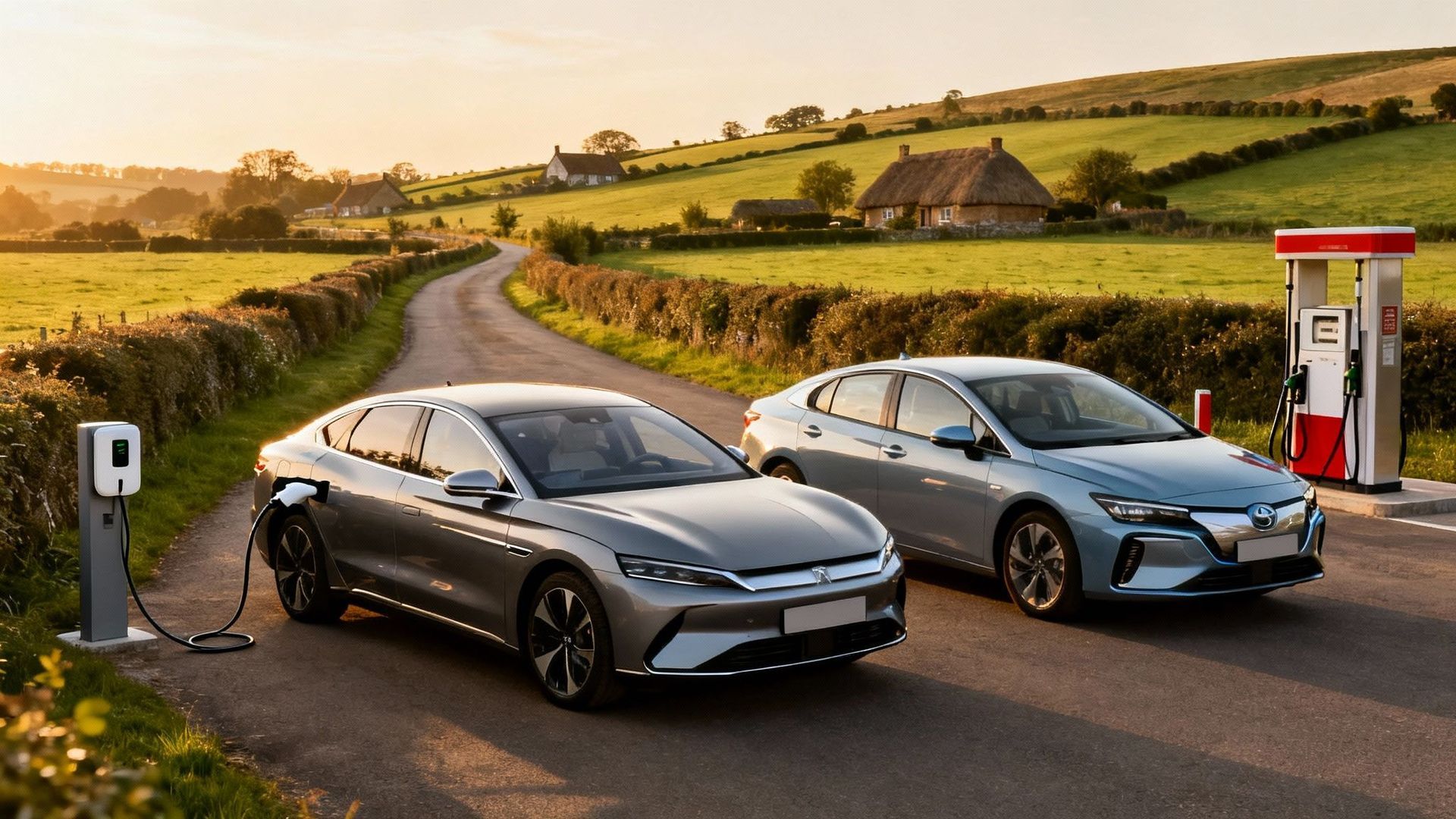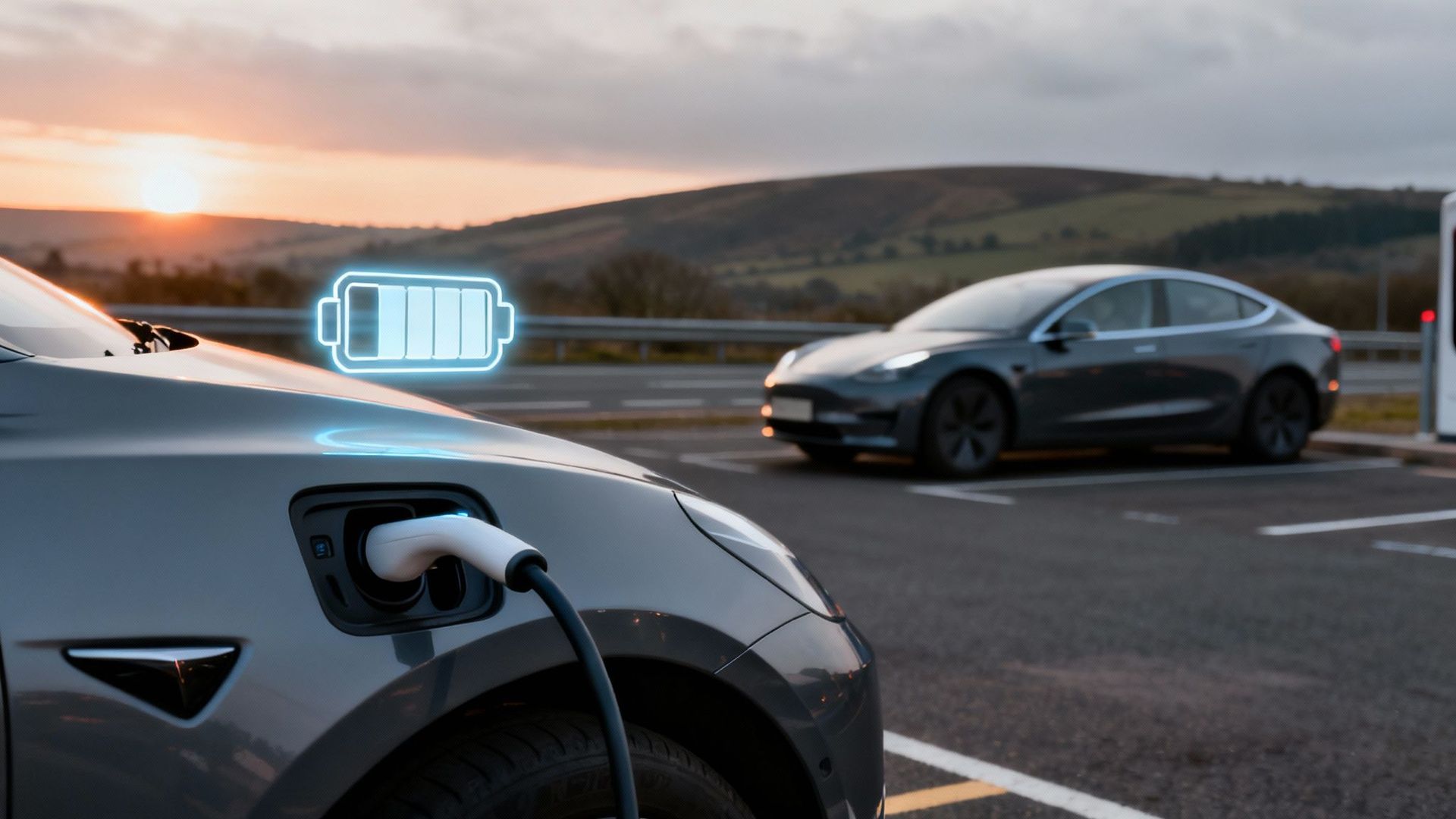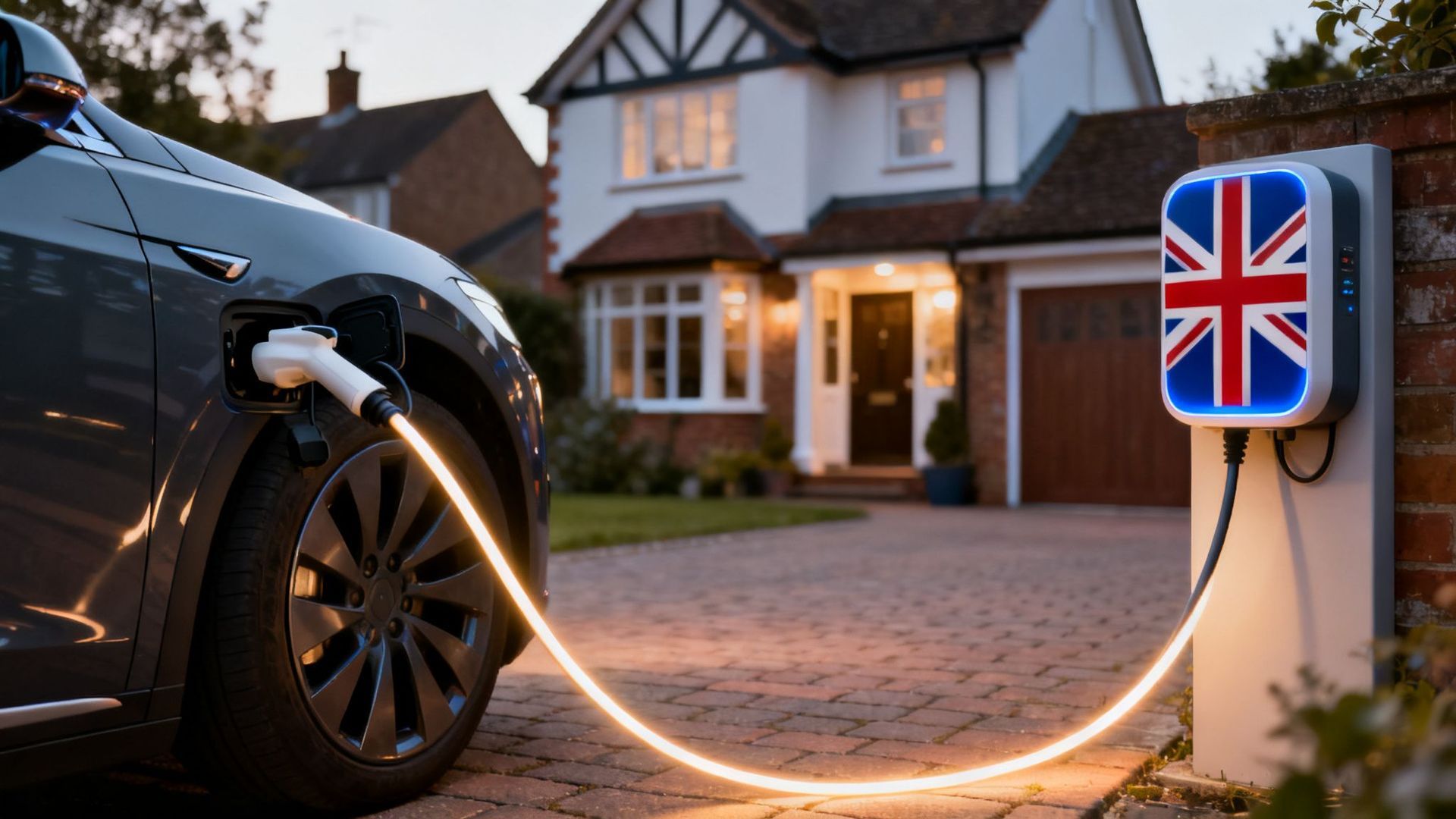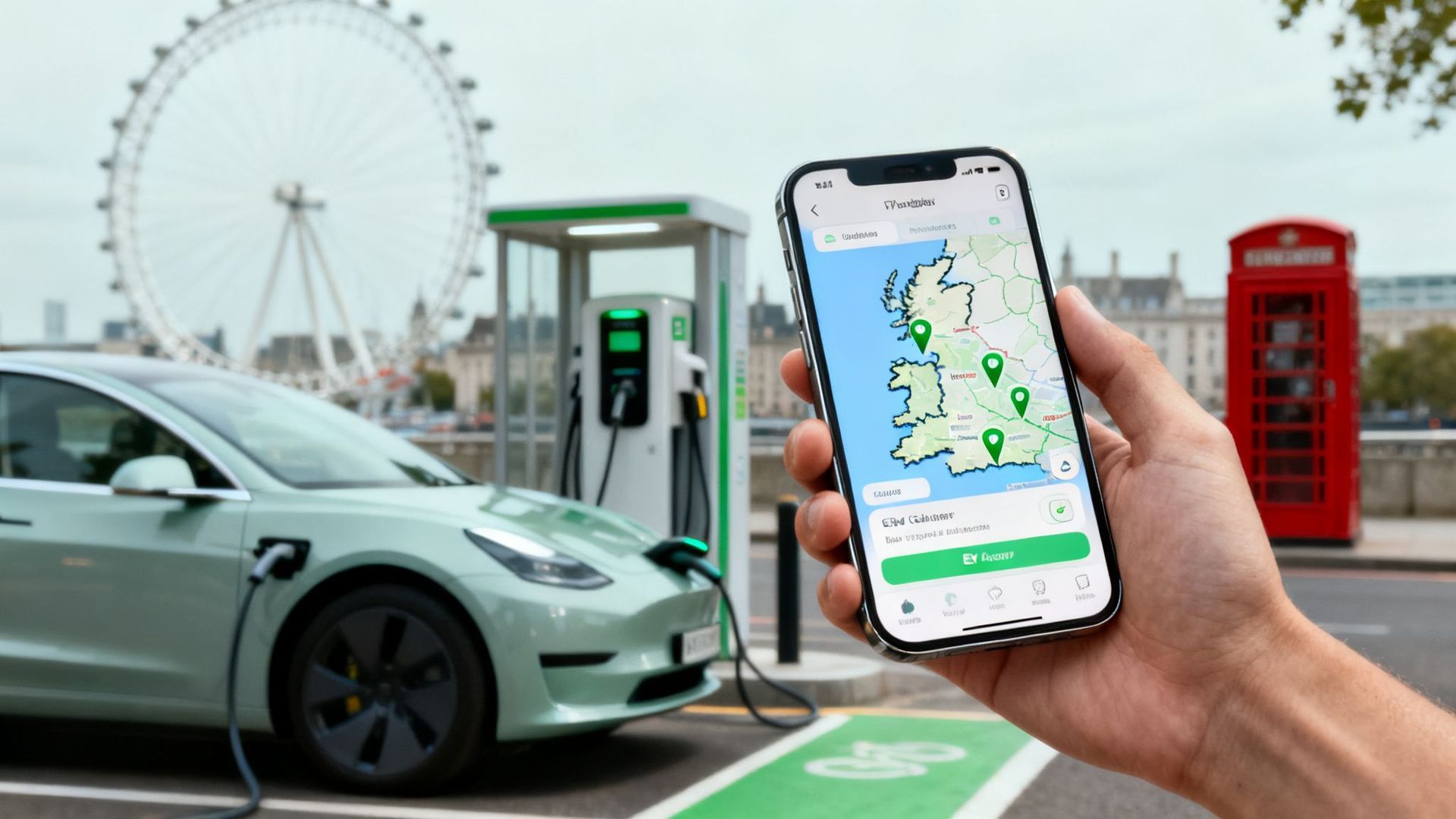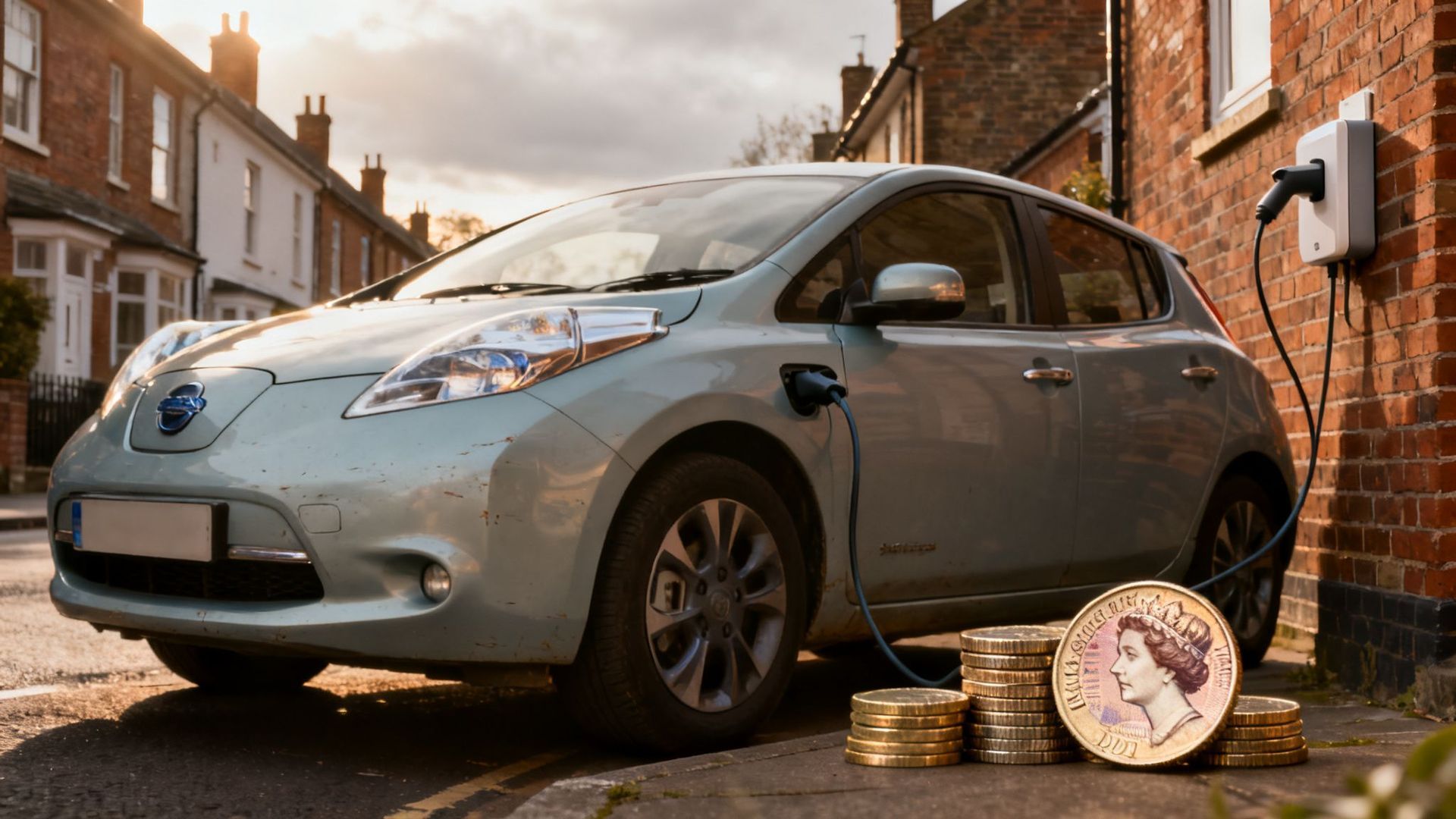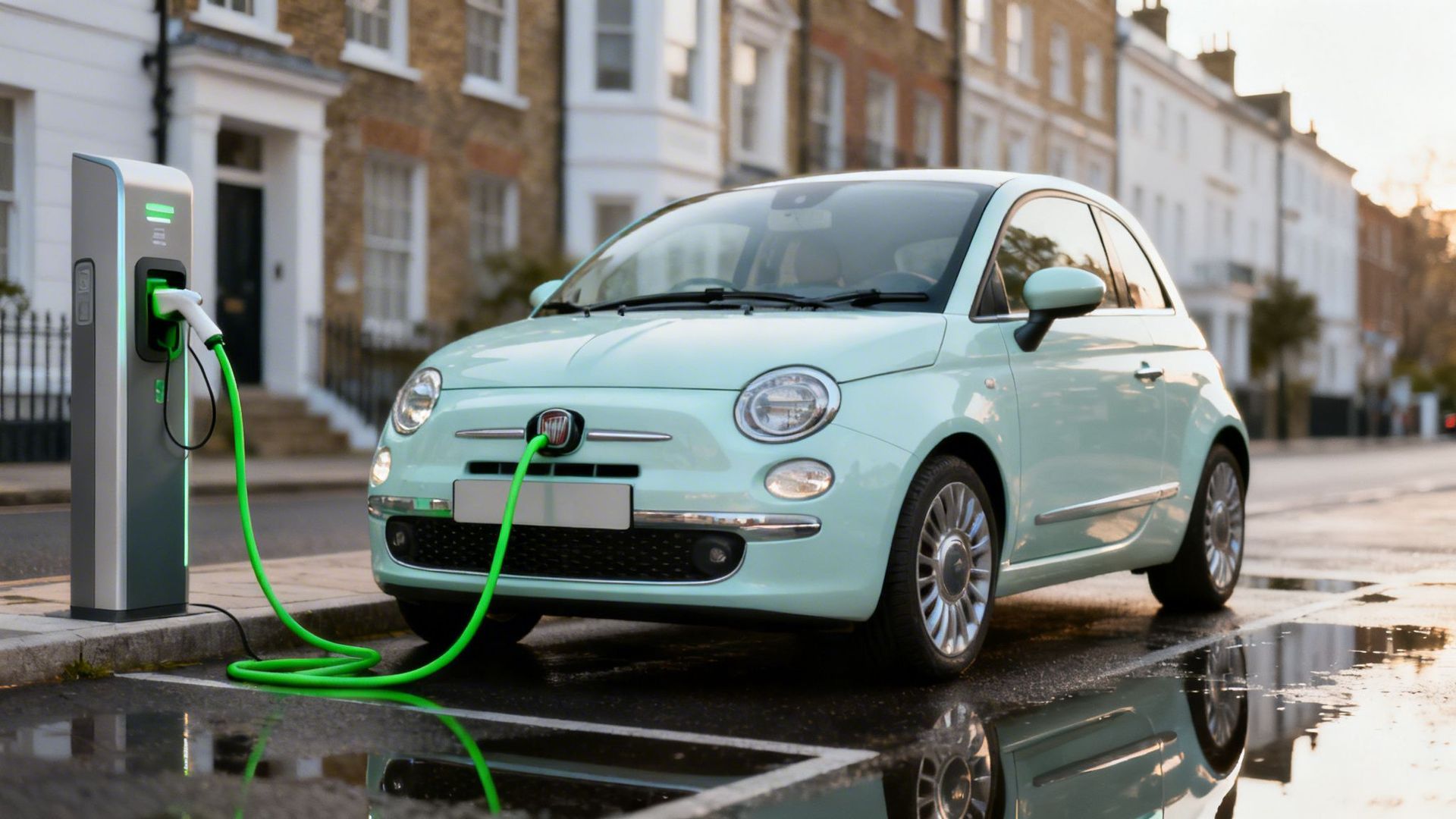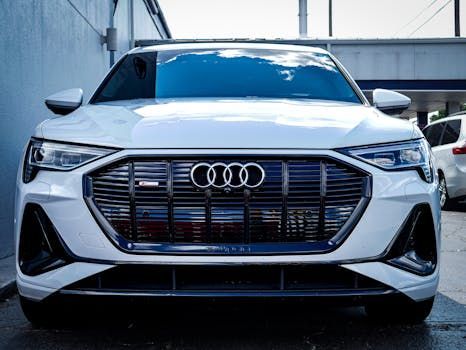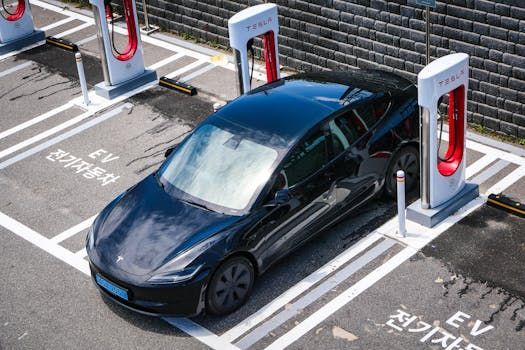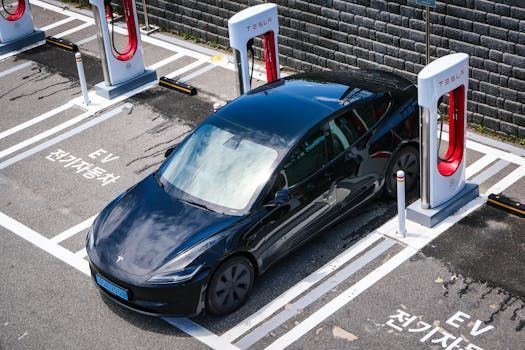CCS to CHAdeMO Adapter: A UK Driver's Guide to Bridging the Great Divide
A CCS to CHAdeMO adapter is a rather clever bit of kit that bridges the chasm between two rival electric vehicle charging standards. It’s the gadget that lets a bang-up-to-date car with a CCS port have a chinwag with an older CHAdeMO charging station.
Think of it as a diplomatic travel adapter, but for your car. It's the essential go-between that solves a very modern, and frankly quite daft, problem for EV drivers.
Welcome to the Great EV Charging Kerfuffle
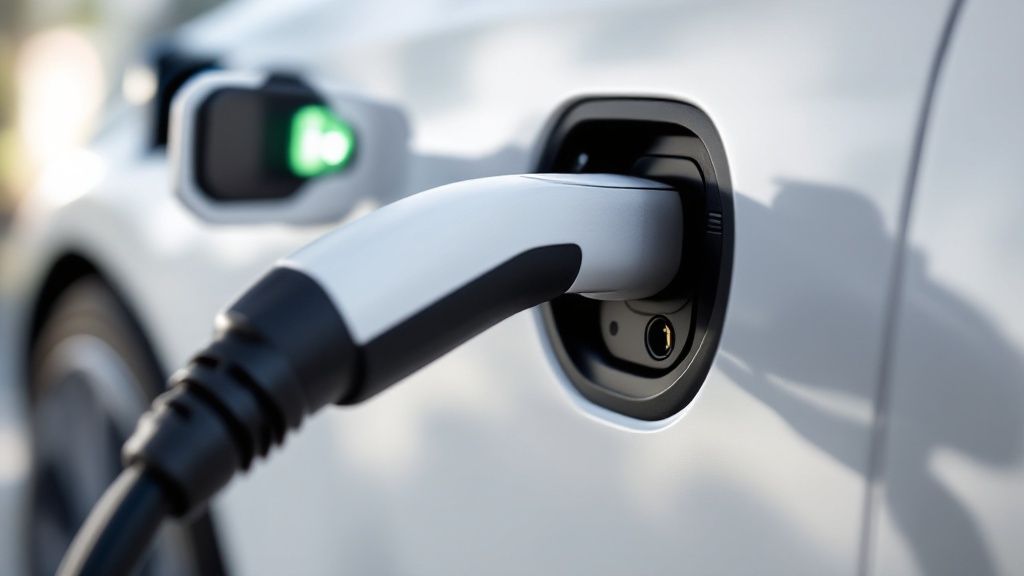
Ah, the world of electric vehicle charging. It was all supposed to be so simple, wasn't it? Plug in, top up, and swan off into the sunset. Instead, it can sometimes feel a bit like trying to figure out which phone charger you need from a tangled drawer of obsolete cables. You’ve got CCS (Combined Charging System), the shiny new standard pretty much everyone is using now, and then there's CHAdeMO, its slightly older, more eccentric cousin from Japan.
This mismatch creates a proper headache for today’s motorist. You pull up in your gleaming new EV, which has a CCS port, only to discover the only free rapid charger has a CHAdeMO plug dangling from it. It's the automotive equivalent of turning up to a party with a USB-C cable when everyone else is still using a Nokia charger from 2003.
The Betamax vs VHS of Plugs
What we're witnessing is basically the Betamax vs VHS format war, but for cars. In one corner, you have CHAdeMO, a true pioneer in the fast-charging game. In the other, CCS, the European-backed standard that promptly became the dominant force across the UK and Europe, bullying its rival into submission.
For a long time, the UK's charging infrastructure was actually skewed towards CHAdeMO. This historical quirk is the entire reason a CCS to CHAdeMO adapter even needs to exist. Early EVs, most famously the Nissan Leaf, helped build a huge network of CHAdeMO chargers.
One study really drove this home, showing that even as recently as the mid-2020s, CHAdeMO connectors were responsible for a staggering 75% of fast charging sessions and delivered 72% of the total energy in the UK. This legacy infrastructure hasn't just vanished overnight, leaving thousands of perfectly good, yet increasingly incompatible, charging points dotted all over the country.
And so, the adapter was born—a smart little gadget designed to act as a go-between, letting your new-fangled CCS car have a polite, electronically-mediated chat with an older CHAdeMO charger.
So Why Should You Give a Toss?
Getting your head around this charging kerfuffle is the key to deciding if an adapter is a genuinely useful tool for your boot or just an expensive paperweight. In a nutshell, here's the problem it solves:
- Access to Legacy Chargers: It unlocks a whole network of older rapid chargers that are often less busy because everyone else is fighting over the new ones.
- Reduced Range Anxiety: In some rural or less-developed areas, a CHAdeMO point might be the only rapid option for miles. A veritable oasis in a charging desert.
- Sheer Convenience: It can save you from sitting in a queue for the only CCS charger while a perfectly good CHAdeMO one sits there, looking bored and lonely.
This guide will help untangle the mess, exploring if this clever bit of kit is the solution you need to navigate the wonderfully daft reality of the EV charging landscape in the UK.
How This Clever Bit of Kit Actually Works
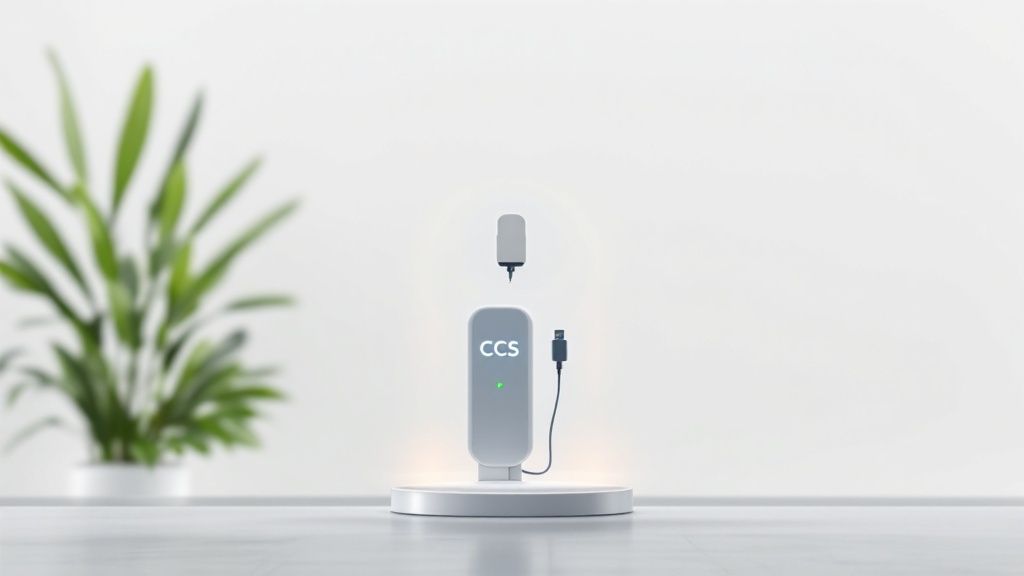
Right then, let's get under the bonnet and see what makes these adapters tick. At its core, a CCS to CHAdeMO adapter is a seriously smart translator. It’s not just a chunky bit of plastic that makes one plug fit another.
Think of it less like a simple travel plug for your phone and more like a real-time interpreter at the UN. On one side, you have the charging station speaking fluent "CHAdeMO." On the other, your car is expecting to hear "CCS." They use completely different digital languages to talk about things like battery levels, charging speed, and safety checks. The adapter's job is to sit in the middle and make sure they understand each other perfectly, preventing an international incident.
The Digital Handshake
When you connect everything, a complex digital conversation has to take place before a single electron starts flowing. The CHAdeMO charger needs to know your car's battery status, what voltage it can accept, and when to ease off the power. Your CCS-equipped car, meanwhile, has its own rules and safety protocols it needs to follow.
This is where the adapter shines, managing a constant back-and-forth between the two systems. It’s a bit like one person sending a text while the other is using morse code – the adapter has to decode and re-encode every single message, instantly.
The process boils down to a few key steps:
- Authentication: The adapter first announces your car's presence to the CHAdeMO station, essentially saying, "Alright mate, I've got a car here that needs a top-up."
- Information Exchange: It then yanks crucial data from your car – like its current state of charge and the maximum power it can handle – and feeds it to the charger.
- Protocol Translation: This is the clever bit. It translates the CHAdeMO charger's instructions into the language your car's CCS system understands, and sends your car's replies back in a format the charger can read.
- Continuous Monitoring: Throughout the charge, this translation happens constantly, managing the charging speed and making sure all safety measures are in place.
Without this lightning-fast translation, the charger would either refuse to start or, worse, create a scenario that could damage your car's eye-wateringly expensive battery.
A CCS to CHAdeMO adapter is really a tiny, dedicated computer. Its one and only job is to make sure two rival technologies can have a safe and productive conversation, preventing any electrical arguments.
More Than Just Matching Pins
While the plugs are obviously different shapes, the real magic is tucked away inside the adapter’s casing. This isn't just a tangle of wires; it's packed with sophisticated electronics that actively manage both the power flow and the communication.
This is why a decent CCS to CHAdeMO adapter isn't cheap. It's an active device, loaded with microprocessors and specialised firmware designed for these intricate translations. It's this smart tech that unlocks the older CHAdeMO charging network for your modern car, giving you more options and a bit more peace of mind on a long drive. It’s a clever solution to a frustrating, and frankly avoidable, problem.
The Slow, Inevitable Demise of CHAdeMO
Pour one out for CHAdeMO. Once the undisputed king of the fast-charging castle, its reign is slowly but surely coming to an end. It's not so much a gentle retirement as it is a full-blown palace coup, with CCS storming the gates and claiming the throne.
The writing has been on the wall for a while now. Car manufacturers, in a rare show of unity, have almost universally pledged their allegiance to the CCS standard for new European models. Sticking with CHAdeMO today feels a bit like a tech company launching a new phone with a Mini-USB port – a baffling decision that practically guarantees obsolescence.
The Changing of the Guard
This isn't just a quiet trend; it's a seismic shift backed by cold, hard numbers. Charging networks across the UK are in a frantic race to install shiny new hubs, and you can bet your last quid they’re almost exclusively kitting them out with CCS connectors. The old CHAdeMO units? They’re often left to wither on the vine, relegated to the loneliest corner of the service station car park.
The data paints a rather brutal picture. Between 2017 and 2024, CHAdeMO installations in Europe saw sluggish growth, averaging around 35% annually . Meanwhile, CCS was exploding with a whopping 80% annual growth .
By 2024, CHAdeMO's market share had plummeted to under 15% of new fast charger installations . They accounted for a mere 4.4% of total charging sessions . You can dive deeper into these charging trends and discover insights on Gireve.com.
Why the Big Shift?
So, what caused this dramatic fall from grace? It really boils down to a few simple truths:
- Standardisation: Europe went all-in on CCS, making it the official, government-backed standard. This essentially forced carmakers' hands.
- Faster Speeds: Right from the start, CCS technology was designed for higher power, enabling the ultra-rapid charging speeds that modern EVs crave.
- Simpler Design: The CCS plug cleverly combines AC and DC charging into one neat socket, unlike the CHAdeMO system which needs a separate port for slower AC top-ups.
This battle for dominance has been a bit of a one-sided affair, as our tongue-in-cheek summary shows.
CHAdeMO vs CCS UK Market Trends
| Metric | CHAdeMO (The Old Guard) | CCS (The Usurper) |
|---|---|---|
| Growth Rate (2017-2024) | A respectable, but ultimately doomed, 35% annually. | A frankly aggressive 80% annually. |
| New Installations (2024) | Under 15%. "Still in the game," it whispers faintly. | Over 85%. Already redecorating the palace. |
| Public Perception | "Oh, my Leaf uses one of those, I think." | "Does it have contactless payment?" |
| Future Outlook | A cherished relic, soon to be a museum piece. | Total and utter domination. The new world order. |
While the numbers clearly show CCS has won the war, there's still a massive network of CHAdeMO chargers out there.
This next image breaks down some key performance metrics you can expect when using a CCS to CHAdeMO adapter to bridge this very technological gap.
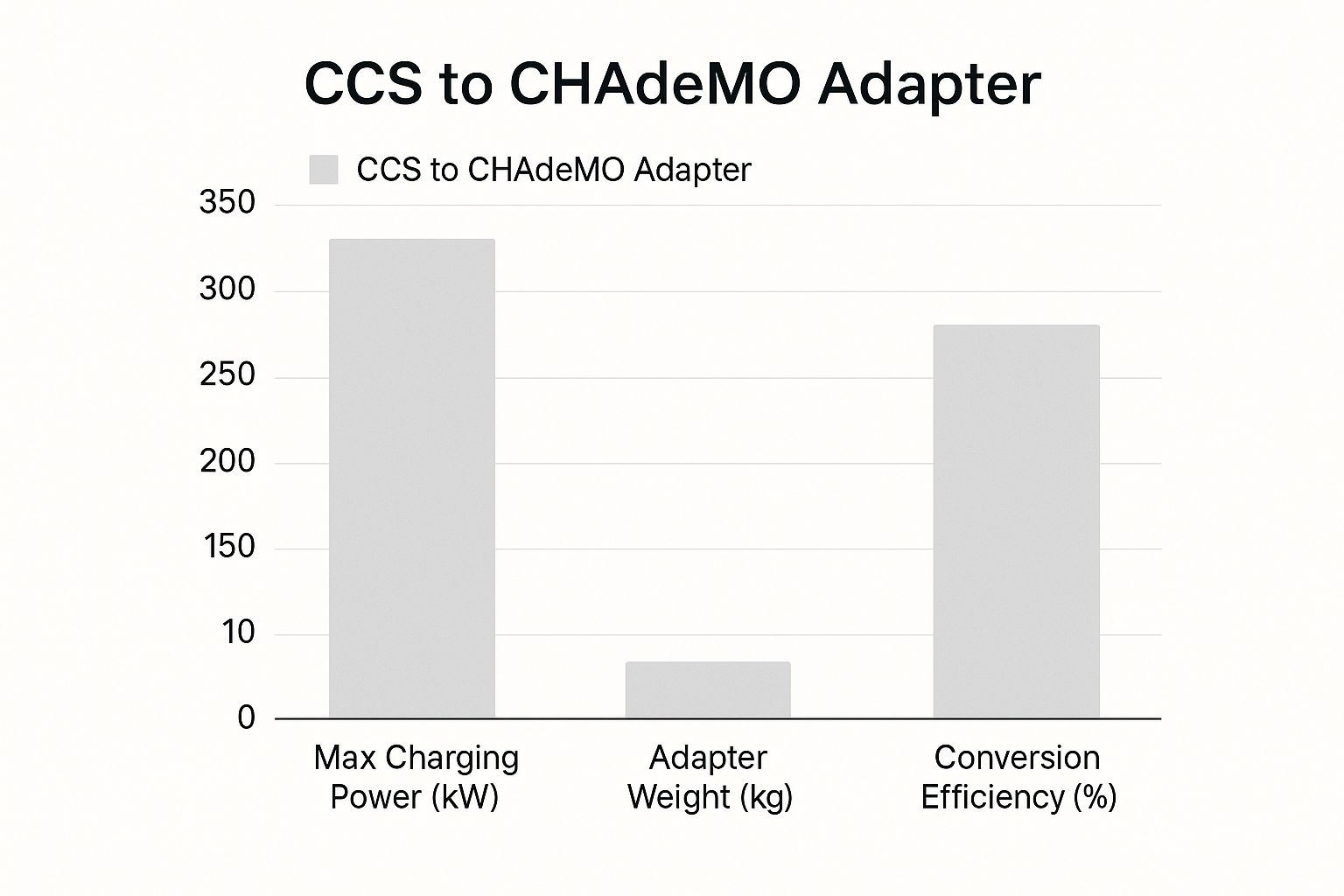
As you can see, these adapters are engineered for high efficiency but are ultimately limited by the maximum power of the older CHAdeMO stations. Despite CHAdeMO's decline, this lingering, sizeable network is precisely why an adapter remains a surprisingly relevant bit of kit for the savvy UK driver.
Should You Actually Buy One of These Adapters?
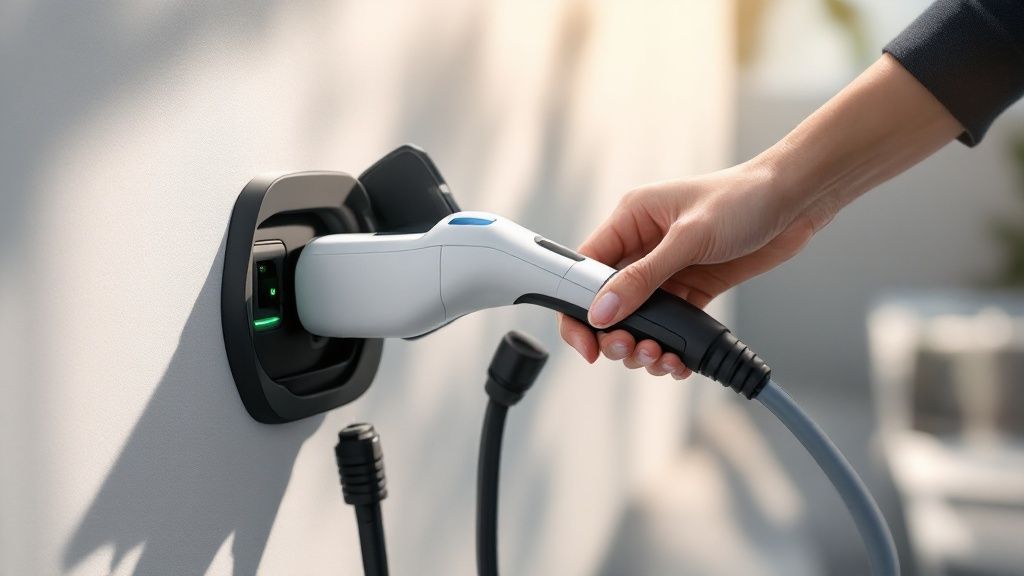
Right, let’s get down to the real question: do you actually need one of these adapters cluttering up your boot? Or is it just another expensive gadget destined to gather dust and mock you for spaffing hundreds of quid on a problem you don't really have?
The answer, like most things in the EV world, is a classic "it depends." For some drivers, a CCS to CHAdeMO adapter is a godsend, unlocking a hidden network of underused chargers. For others, it’s a complete waste of money.
This is your brutally honest guide. We're here to help you figure out which camp you fall into before you splash your hard-earned cash on a lump of plastic and wires.
When an Adapter is Your Best Friend
There are some very specific situations where owning one of these adapters makes perfect sense. You're not just buying a piece of kit; you're buying convenience and, more importantly, peace of mind.
Think about these scenarios:
- You're a Rural Rover: If you live out in the sticks or often drive through less populated areas, this adapter could be a real lifesaver. That one forgotten 50kW CHAdeMO charger at a remote service station might be the only rapid option for miles.
- The Nan Visit: We’ve all got that regular long-distance trip, maybe to visit family in a town that time forgot. If the most convenient charger near their house is an old CHAdeMO unit, an adapter turns a charging headache into a simple top-up.
- You're a Queue-Jumper: Ever pulled into a busy charging hub to find every CCS bay taken, with a queue of frustrated drivers waiting, while the lone CHAdeMO charger sits gloriously empty? With an adapter, you can smugly plug in and get on with your day.
If any of these sound familiar, then an adapter could genuinely make your EV life easier. It's a key that unlocks charging opportunities others simply can't access, and it's a brilliant tool to help you find electric vehicle charging stations without having a meltdown.
When It's a Glorified Paperweight
Now for a dose of reality. For a huge number of UK drivers, especially those in urban areas, buying a CCS to CHAdeMO adapter is pretty much pointless. Don't let the fear of missing out (FOMO) tempt you into a needless purchase.
The UK's charging network is growing at a phenomenal rate. By early 2025 , the number of public EV chargers had jumped by 37% in just one year , reaching over 73,000 units. Crucially, the vast majority of this new investment is pouring into CCS infrastructure.
If your daily driving world is already saturated with modern, reliable CCS chargers, an adapter is a solution in search of a problem. The faff of carrying it, plugging it in, and potentially getting slower speeds just isn't worth it.
So, when should you give it a miss?
- You're a City Dweller: If you live and work in a major town or city, you're likely tripping over new CCS chargers. Your car will be fully charged long before you'd ever need to consider using an older standard.
- Your Car Charges Blisteringly Fast: If you drive a high-end EV that can handle 250kW , being limited to a 50kW CHAdeMO charger will feel like watching paint dry. An adapter can't work miracles on charging speed.
- You're on a Budget: Let's be honest, these things aren't cheap. That money could be better spent on a home charger or simply put towards your electricity bill.
Before you click "buy," take a hard look at your actual driving habits, not your imagined worst-case scenarios. If you can't remember the last time you saw a CHAdeMO charger, let alone needed one, then you probably have your answer. Save your money.
A Buyer's Guide to Not Getting Ripped Off
So, you’ve weighed the pros and cons and decided a CCS to CHAdeMO adapter is the right bit of kit for you. Splendid. Now comes the tricky part: navigating a market that can feel a bit like the Wild West, complete with snake oil salesmen and dodgy-looking contraptions on obscure websites.
Handing over several hundred quid for what is essentially a very clever plug requires a bit of due diligence. This isn't just a phone charger, after all; it's a device funnelling a huge amount of electricity straight into your very expensive car. Getting it wrong could lead to anything from a fried charging port to, well, a rather dramatic fire.
What to Look For on the Label
Before you even think about adding an adapter to your shopping basket, you need to get familiar with safety certifications. They might look like boring acronyms, but they are your first and most important line of defence against buying a potential car-bricker.
Here are the absolute non-negotiables:
- CE Marking: This is the bare minimum. It shows the product meets EU and UK standards for health, safety, and environmental protection. If there’s no CE mark, steer clear.
- UKCA Marking: Think of this as the post-Brexit equivalent of the CE mark for products sold in Great Britain. Any new kit sold here should have it.
- TÜV or UL Certification: These are a cut above. They are independent certifications from respected third-party labs that have put the product through rigorous safety and quality testing. Seeing a TÜV or UL mark is a massive vote of confidence in its reliability.
Think of these certifications as the adapter's MOT. A product without them is like a car with no service history and four bald tyres – you'd be mad to trust it.
Red Flags and Where to Buy
The golden rule is simple: if a deal looks too good to be true, it absolutely is. A suspiciously cheap adapter from a seller you've never heard of on a huge online marketplace is waving a giant red flag. You're much better off sticking to reputable, specialised EV equipment suppliers or official brand distributors.
Always check the warranty, too. A decent manufacturer will stand by their product with at least a 12-month warranty . Anything less, or a vague returns policy, suggests they don’t have much faith in their own gear. And don't forget, user reviews are your best friend. See what other drivers with your specific car model are saying before you commit your cash.
Ultimately, buying an adapter is an investment in convenience, much like deciding whether to invest in a home charger or stick with public networks. Do your homework, prioritise safety over saving a few quid, and you'll end up with a genuinely useful tool instead of an expensive, car-sized problem.
Your Questions Answered
So, you've stuck with us this far. That means you're either seriously thinking about getting one of these adapters, or you're just morbidly curious about the beautiful mess that is EV charging standards. Whichever it is, you've probably got some questions. Let's get them answered.
Will a CCS to CHAdeMO Adapter Slow Down My Charging Speed?
In a word, yes. You absolutely should not expect to hit the lightning-fast speeds your CCS-native car can handle. The reality is that most CHAdeMO chargers still kicking about in the UK max out at a leisurely 50kW .
That feels glacial compared to the 150kW or even 350kW speeds you see on modern CCS rapid chargers. The adapter is there to make charging possible, not to work magic. It’s the difference between taking a winding country lane and blasting down the motorway – both get you there, but one is significantly slower. Your car can only charge as fast as the CHAdeMO unit and the adapter will permit.
Are These Adapters Compatible with All CCS Cars in the UK?
Definitely not, and this is where many people get caught out. Compatibility is a bit of a minefield, to be honest. While manufacturers try to make their adapters work with as many cars as possible, some vehicles have specific software gremlins that just don't play nice with certain adapters.
Before you even dream of clicking "buy," you must check the adapter manufacturer's compatibility list. Make sure your car's specific make, model, and year are on there. Skipping this step is like buying a pair of shoes without knowing the size – a surefire way to end up frustrated and out of pocket.
Is It Safe to Use a Third-Party Adapter?
It can be, but you need to do your homework. When you're dealing with this much electricity, safety is everything. Only buy from reputable brands that can show you they have proper safety certifications, such as CE , UKCA , or even better, TÜV .
Steer well clear of the suspiciously cheap, unbranded adapters you often find lurking on huge online marketplaces. A properly engineered adapter from a known brand will have multiple safety features built in to protect your car. A cheap knock-off is a fire risk you just don’t want to take.
Ready to dive deeper into the brilliantly bonkers world of electric vehicles? For more honest reviews and straight-talking insights, join the community over at VoltsMonster . We give you the real story on everything from charging oddities to the latest metal. Check us out at https://www.voltsmonster.com.

